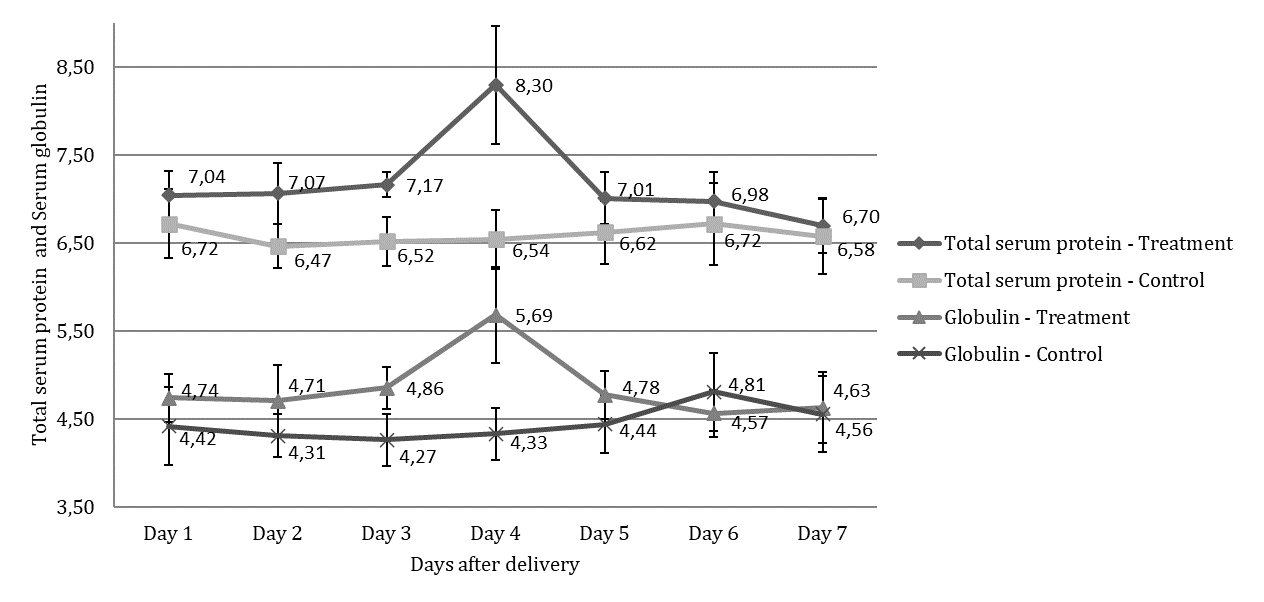Effect of supplementation with core homeopathic on the serum immunological profile of pregnant ewes and lambs
DOI:
https://doi.org/10.21708/avb.2021.15.3.10004Abstract
Few information is available about the optimal period for colostrum absorption in the bowel of newborn lambs. The aim of the current study was to investigate the effects of using supplementation with commercial core homeopathic during pregnancy and early lactation on 18 pregnant Santa Inês ewes presenting body condition score ≥ 2.5. Pregnant animals were randomly divided in two groups; one was used as control (control group) and the other was supplemented on a daily basis with 30 g of homeopathic product with Natrum muriaticum 10-60, Calcium carbonicum 10-30, Silicea terra 10-400 and Hypothalamus 10-30 per animal, mixed to the concentrate during pregnancy and early lactation (treatment group). The Total Protein (TP) and globulin (GLB) values found in ewes and lambs belonging to the treatment group were higher than and different from those recorded for the control group. The serum albumin (ALB) concentration did not differ between groups of ewes but was different in lambs. TP and GLB evolution in lambs and ewes throughout the seven experimental days showed the animals in the treatment group trend to present higher TP and GLB values in all experimental periods; supplemented animals showed trend to progressive increase in both variables until day 3; whereas non-supplemented animals showed such trend until day 2 (when they reached their peak). The commercial core homeopathic to the animals during pregnancy and early lactation resulted in higher TP and GLB concentrations in the serum samples collected from ewes and lambs.
Downloads

Downloads
Published
Issue
Section
License
Autores que publicam na Acta Veterinaria Brasilica concordam com os seguintes termos: a) Autores mantém os direitos autorais e concedem à revista o direito de primeira publicação, com o trabalho simultaneamente licenciado sob a Licença Creative Commons Attribution que permite o compartilhamento do trabalho com reconhecimento da autoria e publicação inicial nesta revista. b) Autores têm autorização para assumir contratos adicionais separadamente, para distribuição não-exclusiva da versão do trabalho publicada nesta revista (ex.: publicar em repositório institucional ou como capítulo de livro), com reconhecimento de autoria e publicação inicial nesta revista. c) Autores têm permissão e são estimulados a publicar e distribuir seu trabalho online (ex.: em repositórios institucionais ou na sua página pessoal) a qualquer ponto antes ou durante o processo editorial, já que isso pode gerar alterações produtivas, bem como aumentar o impacto e a citação do trabalho publicado (Veja O Efeito do Acesso Livre).


 Esta obra está licenciada com uma Licença
Esta obra está licenciada com uma Licença 